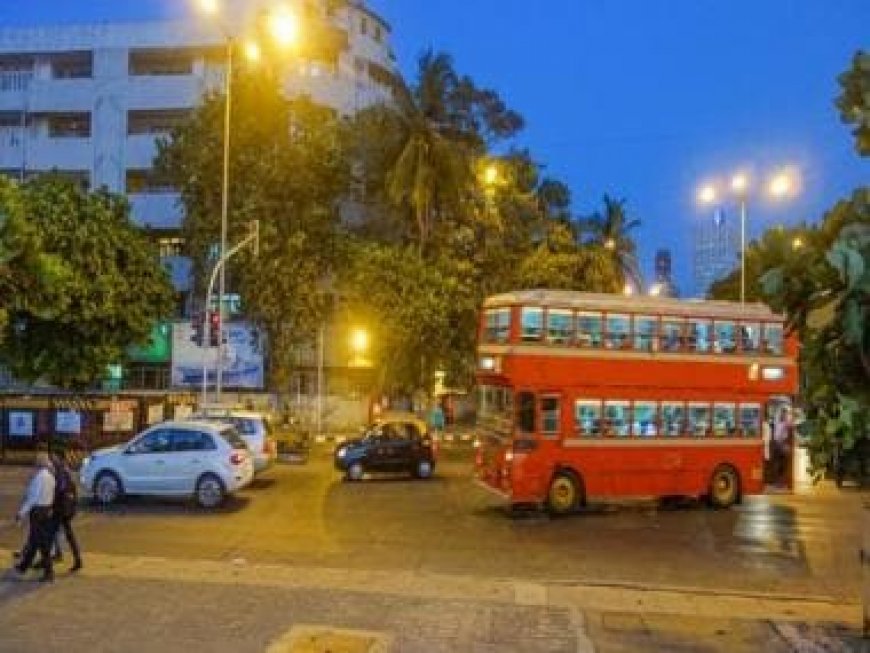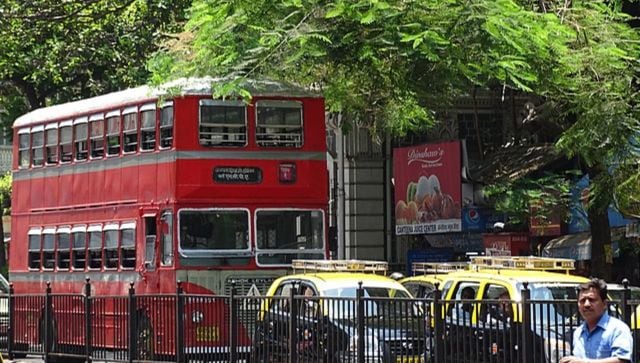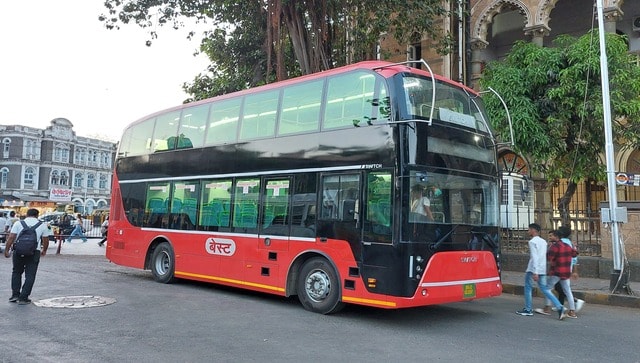Why Mumbai is saying goodbye to its famous double-decker buses
Why Mumbai is saying goodbye to its famous double-decker buses

Mumbai is bidding adieu to its red double-decker buses, ending its decades-old relationship with the iconic mode of public transport. These diesel-fuelled buses will have their last run on the city’s roads this week, a Brihanmumbai Electric Supply and Transport (BEST) official told news agency PTI.
The open-deck twin-decker buses, popular among tourists, will be taken off the roads of Maharashtra’s capital on 5 October, the official added.
Let’s understand the history of double-decker buses in Mumbai and why they are now being removed.
Turning back the clock
Double-decker buses were introduced to Mumbai in 1937 by the British. Based on London’s double-deckers, these vehicles were brought to tackle the city’s transportation woes.
As Mumbai, or then Bombay, expanded, so did the number of these buses, which became one of the city’s most well-known features, as per an Indian Express report.
In the 1990s, Mumbai had as many as 900 double-decker buses. As per the newspaper report, these buses were plying on 26 routes across the city by the 1960s.

Famous among locals and tourists alike, particularly in South Mumbai, the vehicle was not only a mode of transport but also provided a scenic view of the city. The bus ride from Santacruz station to Juhu Church was one of the most sought-after routes in the suburbs, reported Indian Express.
Fall in numbers
There has been a gradual decline in the number of double-decker buses in Mumbai. BEST stopped inducting new double-decker buses after 2008, as per news agency PTI.
According to the Indian Express report, the vehicle’s spare parts were heavy making them difficult to transport, as well as costly. These buses also consumed more fuel, increasing the operating costs.
BEST also cited hiring more personnel for the buses as an extra conductor was required for the top-deck for its move to phase out these buses, the report added. By August 2022, there were only 48 double-decker non-AC buses left in Mumbai.
Why all double deckers are going off the road now
Last August, BEST launched its first electric air-conditioned double-decker bus in the city.
Equipped with modern facilities such as automatic doors and CCTV cameras, these vehicles are environment-friendly, reported Indian Express.
Since February this year, BEST has been phasing out the iconic double-decker buses to replace them with leased battery-run red and black double-decker buses, as per PTI.
“Currently, just seven double-decker buses, including three open-deck buses are left in the BEST’s fleet. As these vehicles are completing 15 years of their codal life, the double-decker buses will forever go off roads from 15 September, while the open-deck buses will be pulled out on 5 October,” a BEST spokesperson was quoted as saying by the news agency.
The four remaining BEST non-AC buses are running between Agarkar Chowk to Seepz and Kurla, as per Hindustan Times (HT).
BEST will procure a total of 900 e-buses, which will be added to the fleet in a phased manner. About 25 such AC double-decker e-buses are plying on the roads in Mumbai so far, reported PTI.

These e-buses, which can carry up to 90 passengers per vehicle, are likely to help BEST in reducing its carbon footprint. “These AC double-decker electric buses will help BEST achieve its zero carbon emission target. BEST is known for its double-decker buses, however, with an increase in fuel price, running the diesel-run buses has been a costly business,” BEST general manager Lokesh Chandra told Indian Express in February.
Last week, the transport undertaking said it has started procuring open-deck buses for sightseeing.
Memories for many
For many Mumbaikars, these red double-decker buses hold fond memories of their past. “I last travelled in a double-decker bus 20-25 years ago. Back then I would use the service quite often. Children loved the front seats on the upper deck. The bus offers a special experience of travel,” Sulbha Dixit, a 59-year-old homemaker, told HT.
To bid goodbye, NGO Jeevan Jyot Prathistan Sanstha booked a double-decker bus for 72 senior citizens on Tuesday (12 September) who went on a nine-hour drive from Agarkar Chowk in Andheri East to Chhatrapati Shivaji Maharaj Terminus (CSMT).
“It is a good way to remember this iconic mode of public transport. I am grateful that I got to travel in one of the last remaining buses from the old lot,” Anant Dhabolkar, a 70-year-old retired professional, told HT.
Aapli BEST Aaplyasathi, a commuters’ body, has written to chief minister Eknath Shinde, his deputies Devendra Fadnavis and Ajit Pawar, BMC chief Iqbal Singh Chahal and BEST general manager to prevent two double-deckers from going under the vehicle crusher.
“We have requested them to preserve the last two red double-decker buses and put them on display at the BEST’s museum for tourists and future generations,” Rupesh Shelatkar, president of the commuters group, was quoted as saying by PTI.
While a passenger agreed that the new e-buses are more comfortable, they do not have the same charm as their old counterparts.
“As the new double-decker e-buses are air-conditioned, we will miss sitting in the front in the old buses and travelling with the breeze from the open windows on our faces,” Harshad Joshi, a bus enthusiast, told PTI.
With inputs from agencies
What's Your Reaction?



























































